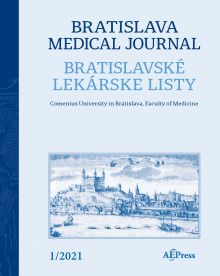Journal info
|
||||
Select Journal
Journals
Bratislava Medical Journal 2024 2023 2022 2021 2020 2019 2018 2017 2016 2015 2014 2013 2012 Ekologia - Ecology Endocrine Regulations General Physiology and Biophysics Neoplasma Acta Virologica Studia Psychologica Cardiology Letters Psychológia a patopsych. dieťaťa Kovove Materialy-Metallic Materials Slovenská hudba 2025Webshop Cart
Your Cart is currently empty.
Info: Your browser does not accept cookies. To put products into your cart and purchase them you need to enable cookies.
Bratislava Medical Journal Vol.116, No.9, p.520–530, 2015 |
||
| Title: The perspective of caffeine and caffeine derived compounds in therapy | ||
| Author: M. Pohanka | ||
| Abstract: Caffeine (1,3,7-trimethylxanthine) is a plant secondary metabolite with a significant impact on multiple processes and regulatory pathways in the body. Though major part of the population meets caffeine via coffee, tea or chocolate, it has also an important role in pharmacology and it is used as a supplementary substance in medicaments. Currently, the ability of caffeine to ameliorate some neurodegenerative disorders is proved in some studies. This review describes basic data about caffeine including toxicity, pharmacokinetics, biological mechanism of the action, and metabolism. Beside this, promising applications of caffeine, new medicaments and derivatives are discussed. Relevant papers and inventions are depicted in the manuscript. Caffeine is a pharmacologically promising substance that deserves big consideration in the current research and development. The compound has several reasons to be an object of scientific interest and to be used for pharmacology purposes. Despite an extensive research for a long time, no significantly negative effects on human health were proved hence caffeine can be considered as a completely safe compound. The recent data about amelioration of neurodegenerative and other disorders are promising and deserving more work on the issue. ARTICLE HIGHLIGHTS Caffeine is a purine alkaloid from plants and it has a broad use in current pharmacology. Caffeine is a competitive antagonist of neurotransmitter adenosine on adenosine receptors. The substance is added as a supplementary to drugs and food. Besides interfering on adenosine receptors, caffeine interacts with acetylcholinesterase, monoamine oxidase, phosphodiesterase, ryanodine receptors and others. Current research is devoted to the role of caffeine in neurodegenerative diseases and immunity alteration. New chemical compounds based on caffeine moiety are prepared(Tab. 4, Fig. 6, Ref. 149). |
||
| Keywords: caffeine, Alzheimer disease, Parkinson disease, immunity, adenosine, GABA, dopamine, theophylline, theobromine. | ||
| Published online: 23-Sep-2015 | ||
| Year: 2015, Volume: 106, Issue: 9 | Page From: 520, Page To: 530 | |
| doi:10.4149/BLL_2015_106 |
||
|
|
 download file download file |
|

